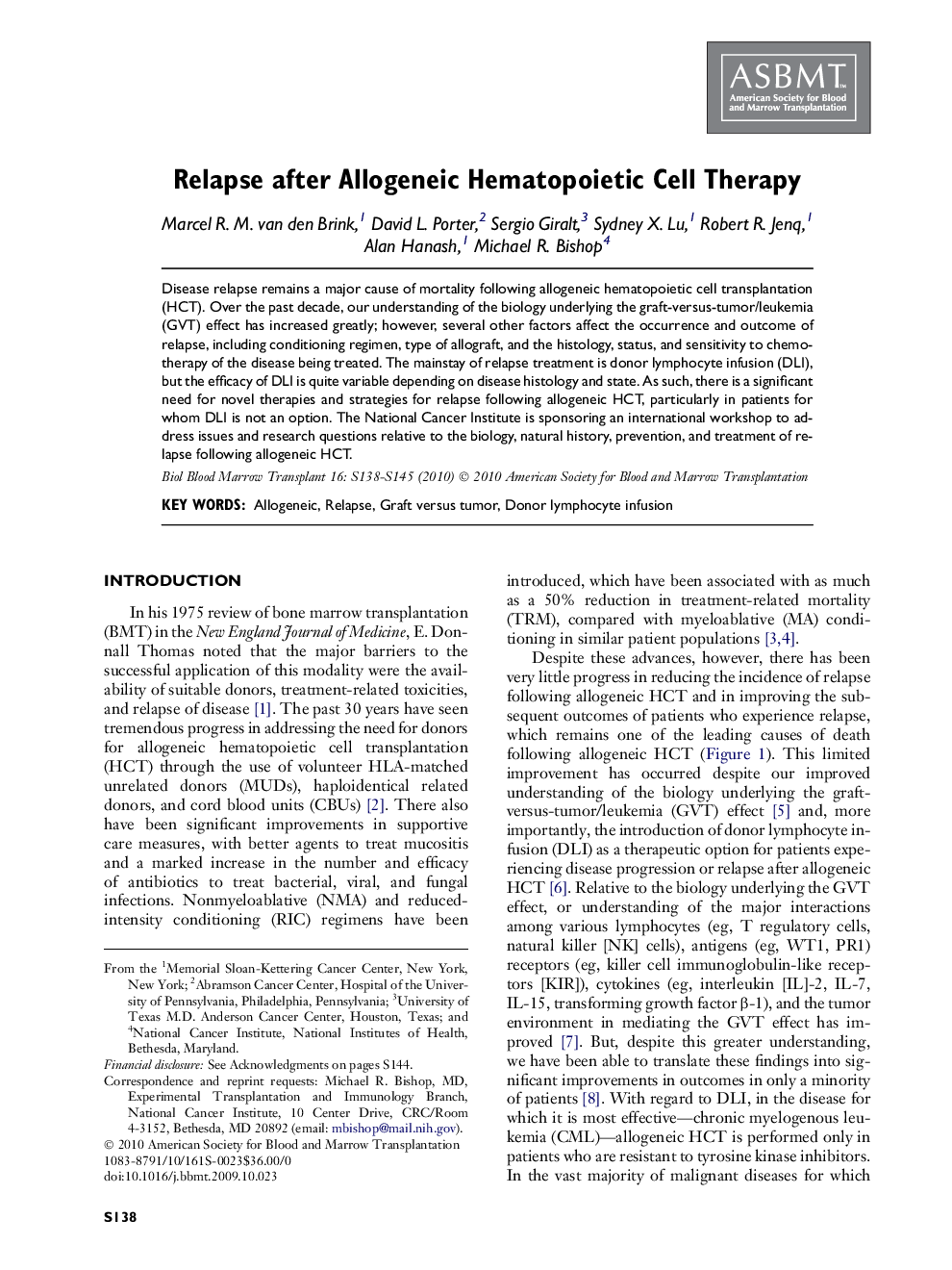| Article ID | Journal | Published Year | Pages | File Type |
|---|---|---|---|---|
| 2104078 | Biology of Blood and Marrow Transplantation | 2010 | 8 Pages |
Disease relapse remains a major cause of mortality following allogeneic hematopoietic cell transplantation (HCT). Over the past decade, our understanding of the biology underlying the graft-versus-tumor/leukemia (GVT) effect has increased greatly; however, several other factors affect the occurrence and outcome of relapse, including conditioning regimen, type of allograft, and the histology, status, and sensitivity to chemotherapy of the disease being treated. The mainstay of relapse treatment is donor lymphocyte infusion (DLI), but the efficacy of DLI is quite variable depending on disease histology and state. As such, there is a significant need for novel therapies and strategies for relapse following allogeneic HCT, particularly in patients for whom DLI is not an option. The National Cancer Institute is sponsoring an international workshop to address issues and research questions relative to the biology, natural history, prevention, and treatment of relapse following allogeneic HCT.
